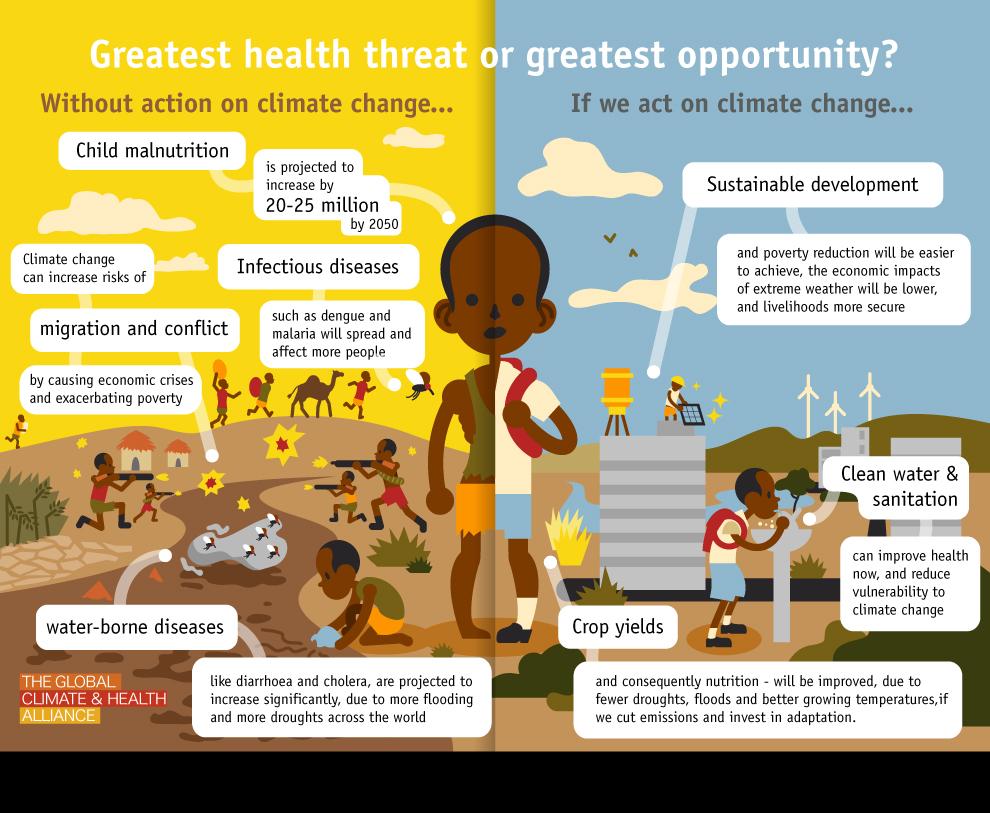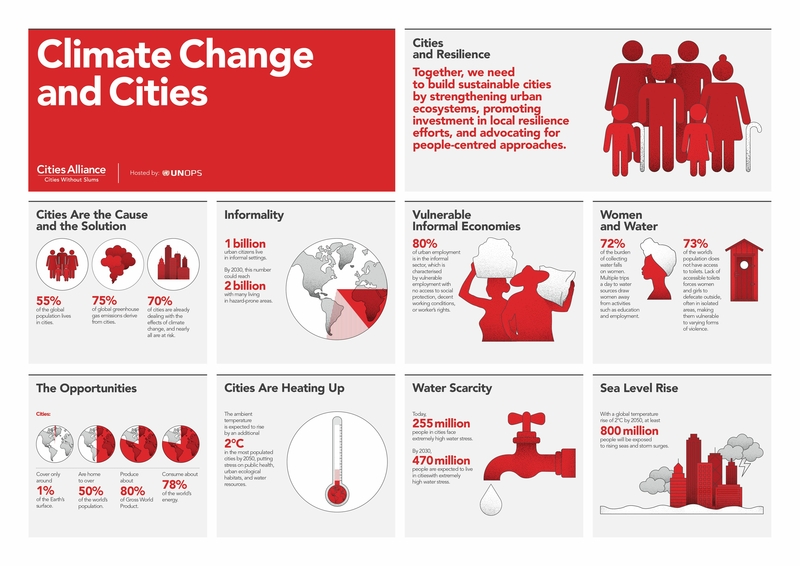

Extreme heat can threaten children’s physical and mental health, impair their ability to learn in school, and threaten safe outdoor play. Susceptibility to heat-related illness is heightened among children, pregnant people, older adults, and people living with pre-existing illness. Heat is the leading cause of weather-related death in the U.S. Extreme heat is becoming more severe and there are wide inequities in heat-related illness and death. The illness and death caused by air pollution impose a major economic toll. In addition, climate change worsens air quality by increasing exposure to wildfire smoke, dust, ground-level ozone, and pollen – all of which harm health.

Due to systemically unjust policies, there are deep racial and income inequities in air pollution exposure. Air pollution harms every major organ system in the body, causes heart disease and childhood asthma, and is a major cause of illness and death in the U.S. Burning fossil fuels drives poor air quality, harms health, and increases health inequities.įossil fuel combustion produces climate change-causing greenhouse gas emissions and harmful air pollution. The 2022 Brief focuses on four areas of health impact: health harms of poor air quality, heat-related illness, infectious disease, and mental health. today, furthering the urgency of decisive policy action to protect health. Climate change is one of many compounding health crises facing communities and health systems across the U.S. Structural racism and economic injustice amplify climate change-related health inequities by increasing susceptibility and exposure to climate threats and reducing the adaptive capacity of communities targeted by discriminatory policies. While everyone is at risk, the health impacts of climate change are not experienced equally. There are also significant implications for health and well-being with disruption to health care delivery population displacement interruptions in education, employment, and other community services and societal-wide economic harm.
#Climate change infographic lung health driver#
Climate change and its primary driver – burning fossil fuels – have created an accelerating crisis of far-reaching health impacts including heart and lung disease, heat-related illness, infections, food- and water-borne ailments, poor pregnancy outcomes, adverse mental health impacts, injuries, and death.


 0 kommentar(er)
0 kommentar(er)
